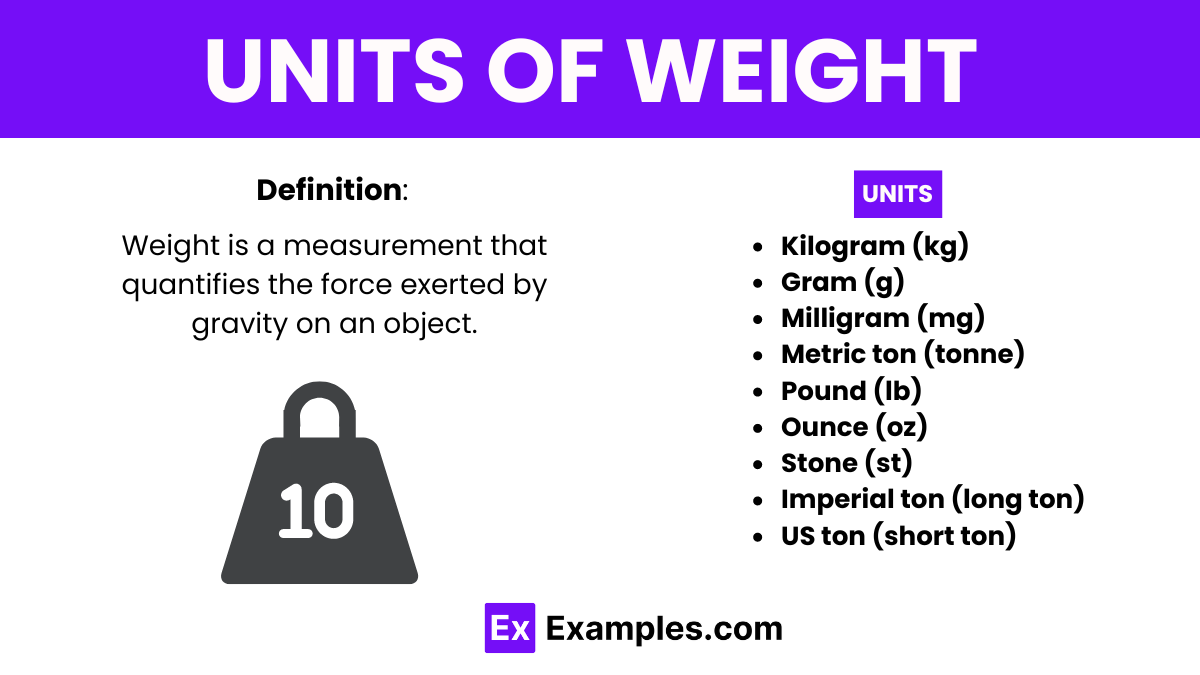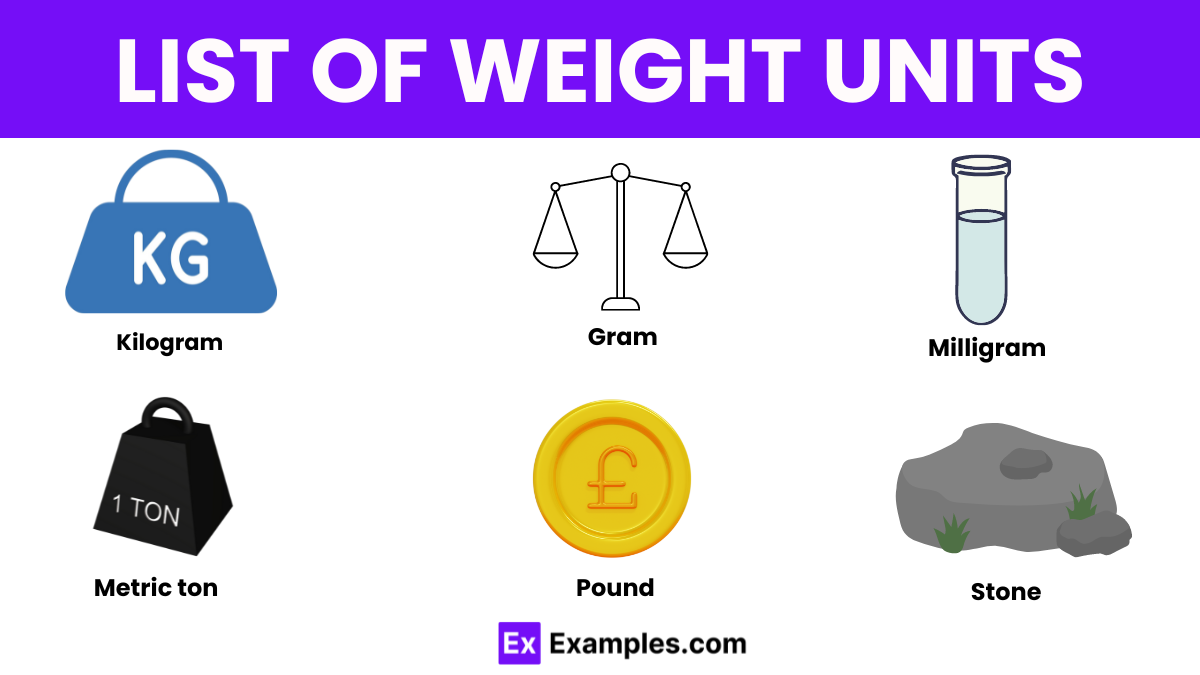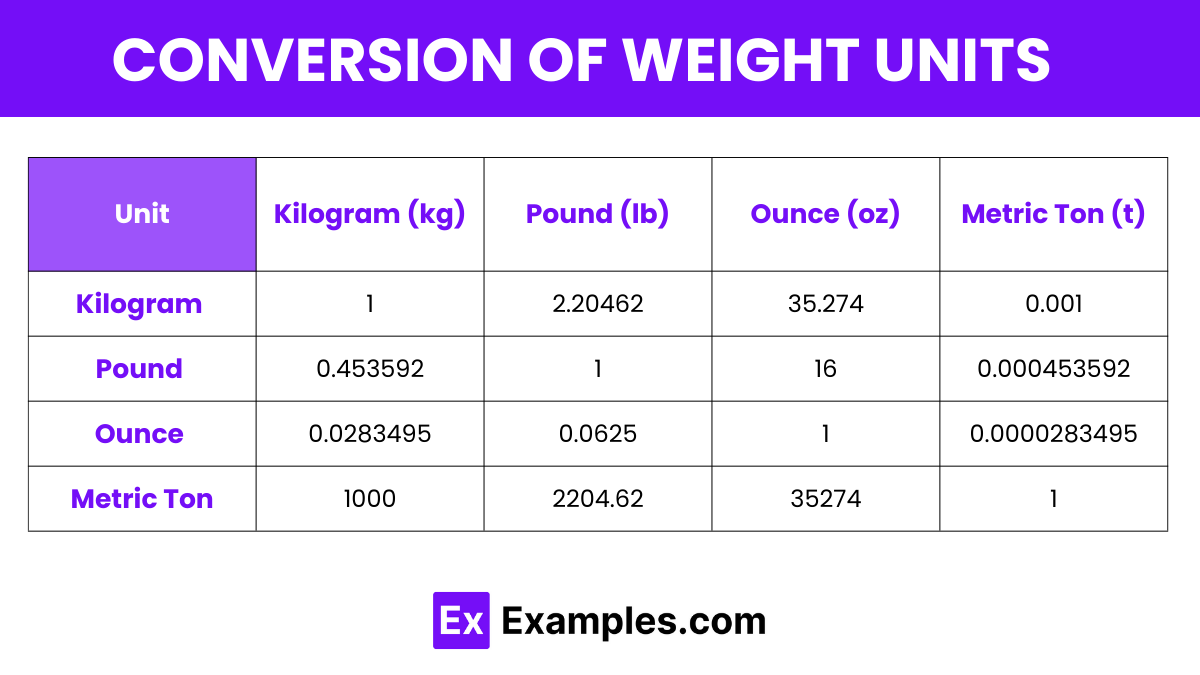What is the SI unit of weight?
Gram
Kilogram
Newton
Pound


Weight is a measurement that quantifies the force exerted by gravity on an object. This fundamental concept is crucial across various fields, from everyday grocery shopping to scientific research in physics and engineering.
Transitioning to the imperial system, particularly prevalent in the United States, pound (lb) and ounce (oz) serve key roles in industries ranging from food service to postal operations.
The SI unit of weight is technically the newton, as weight is a measure of force; however, in everyday contexts, we often refer to kilogram when discussing the ‘weight’ of an object. This common practice arises because weight is the force exerted by gravity on an object, and kilograms are actually a unit of mass.
In the CGS (centimeter-gram-second) system, the unit used to measure weight (force) is the dyne. However, for practical purposes, especially when referring to mass (which is often colloquially referred to as weight), the gram (g) is commonly used. The dyne is defined as the force required to accelerate a mass of one gram at a rate of one centimeter per second squared.

| Unit | Symbol |
|---|---|
| Kilogram | kg |
| Gram | g |
| Milligram | mg |
| Metric ton | t |
| Pound | lb |
| Ounce | oz |
| Stone | st |
| Imperial ton | long ton |
| US ton | short ton |
The kilogram is the SI unit of mass, used globally in almost all fields including science, industry, and everyday commerce. It represents the mass that is accelerated by 1 meter per second squared when a force of one newton is applied.
A pound is a unit of weight used primarily in the United States and other regions still utilizing the imperial system. It is commonly used in commerce, personal weight measurement, and in the packaging of food products.
An ounce is another imperial unit of weight often used in the United States, especially in cooking and postal services for measuring smaller weights.
The gram is a unit of mass within the metric system, widely used in scientific contexts to measure small quantities due to its precision.
Also known as a tonne, the metric ton is used worldwide, particularly in industry and commerce, to measure large quantities of materials, such as in mining and large-scale manufacturing.
The stone is a unit of weight traditionally used in the UK and Ireland for body weight measurement. It is still commonly used in those regions despite the official adoption of the metric system.
The imperial ton, also known as the long ton, is used predominantly in the United Kingdom and is defined as 2,240 pounds.
The US ton, or short ton, is commonly used in the United States, equal to 2,000 pounds. It is prevalent in industries such as shipping and raw materials.

Here’s a conversion table for various units of weight, including Kilogram (kg), Pound (lb), Ounce (oz), and Metric Ton (t). The values provided are conversion factors for converting one unit into another:
| Unit | Kilogram (kg) | Pound (lb) | Ounce (oz) | Metric Ton (t) |
|---|---|---|---|---|
| Kilogram (kg) | 1 | 2.20462 | 35.274 | 0.001 |
| Pound (lb) | 0.453592 | 1 | 16 | 0.000453592 |
| Ounce (oz) | 0.0283495 | 0.0625 | 1 | 0.0000283495 |
| Metric Ton (t) | 1000 | 2204.62 | 35274 | 1 |
The kilogram (kg) serves as the basic metric unit of weight, widely adopted globally for various measuring purposes in commerce and science.
The metric ton, or tonne, stands as the largest standard unit for measuring weight, especially used for heavy, bulk goods in shipping and industry.
The milligram (mg) is recognized as the smallest standard unit of weight, used extensively in pharmaceuticals, science, and nutrition for precise measurements.
Text prompt
Add Tone
10 Examples of Public speaking
20 Examples of Gas lighting
What is the SI unit of weight?
Gram
Kilogram
Newton
Pound
Which unit is commonly used to measure weight in the United States?
Gram
Kilogram
Pound
Newton
What is the relationship between mass and weight?
Weight is mass divided by acceleration due to gravity
Weight is mass multiplied by acceleration due to gravity
Weight is the same as mass
Weight is mass minus acceleration due to gravity
What is the approximate weight of a 10 kg object on Earth? (Assume g=9.8 m/s²)
9.8 N
98 N
980 N
10 N
If an object's mass is 5 kg, what is its weight on the Moon where the acceleration due to gravity is 1.6 m/s²?
5 N
8 N
10 N
15 N
What is the weight of a 50 kg object on Earth?
5 N
50 N
500 N
490 N
Which unit is larger, a pound or a newton?
Pound
Newton
They are the same
It depends on the context
How many grams are there in 1 kilogram?
10
100
1000
10,000
What is the weight of a 2 kg object in newtons on Earth?
2 N
9.8 N
19.6 N
20 N
Which of the following is NOT a unit of weight?
Newton
Pound
Gram
Kilogram
Before you leave, take our quick quiz to enhance your learning!

